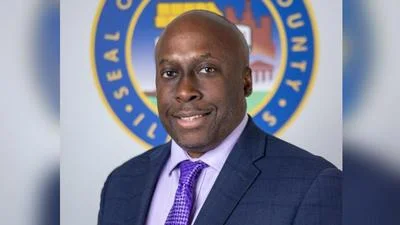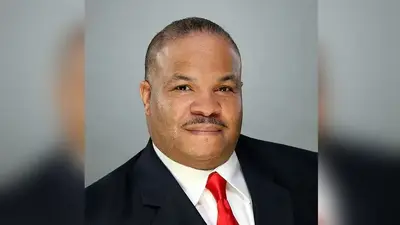Bremen High School District 228 Board of Education member Larry Canning faces a second complaint alleging he violated state campaign finance laws.
This time based on the most recent election cycle, the complaint, filed by Patrick Gordon, a local political activist, claims Canning did not disclose his political committee’s campaign finances, giving no accounting of his expenditures for the 2017 campaign to the Illinois State Board of Elections.
“Mr. Canning has always seemed to operate on the fringes of legitimacy,” Gordon told South Cook News. “Now instead of following the rules he wants to write his own.”
Based on documents provided by Gordon and several other sources close to Canning, there is no evidence that Canning disclosed any expenditures on behalf of Parents for Progress in the campaign season leading up to the April 4 election.
The election board's campaign finance disclosure database only shows records from the 2015 election. Disclosure documents indicate Canning suspended Parents for Progress that same year. Since then, nothing was reported.
If Parents for Progress didn't spend more than $5,000, the committee wouldn’t be required to report its expenditures. A rule dictates that committees that surpass the $5,000 threshold must report their expenditures.
Gordon said that his conservative estimate – based on the known products and services used by Canning and Parents for Progress during the race – exceeds $25,000.
If this is the case, Gordon alleges Canning violated campaign finance disclosure laws, which carry civil penalties costing thousands of dollars.
Christine Svenson, an attorney specializing in election law and vice chair of finance with the Republican National Lawyers Association, told South Cook News this complaint could have a number of outcomes.
“The case gets heard in front of a hearing officer who may or may not find justifiable grounds for a full-blown hearing, where you have subpoena power and witnesses to testify," she said.
Svenson said if the complaint gains legal traction and is proven true, there is no definitive way of telling what the potential ramifications are for Canning. The outcomes for these types of complaints differ on a case-by-case basis.
“In my experience in front of the Board of Elections, they quite frequently ignore the findings of the hearing officer and tend to go their own political way,” Svenson said. “Even if the hearing finds that there is something to this, I have seen the board of election officers says that this isn’t going any further. That is very possible. But I can be completely wrong, and they can say we want this to go to a full hearing.”
Svenson also said she suspects that the total amount spent by Canning and Parents for Progress will exceed $5,000.
If a complaint is filed with the state elections board, it is first heard in a closed hearing with an appointed hearing officer. After both sides present their case, the hearing officer drafts his or her opinion. If the opinion yields that there was a violation, the case will be brought before the board for a public hearing and final verdict.
“People need to be honest and held accountable for what they do in the political arena,” Gordon said. “Some of us do watch and will never let things of this nature go unchallenged.”
Gordon’s complaint follows a similar one filed by school board member Mark Johnson, a former political ally to Canning. The nature of Johnson’s complaint also questions Canning’s campaign practices, but from the 2015 election season.
Johnson alleged Canning misreported donations, campaigned with a government vehicle and received an undisclosed loan to finance campaign activities, among other accusations.
Canning did not return multiple requests for comment.






 Alerts Sign-up
Alerts Sign-up